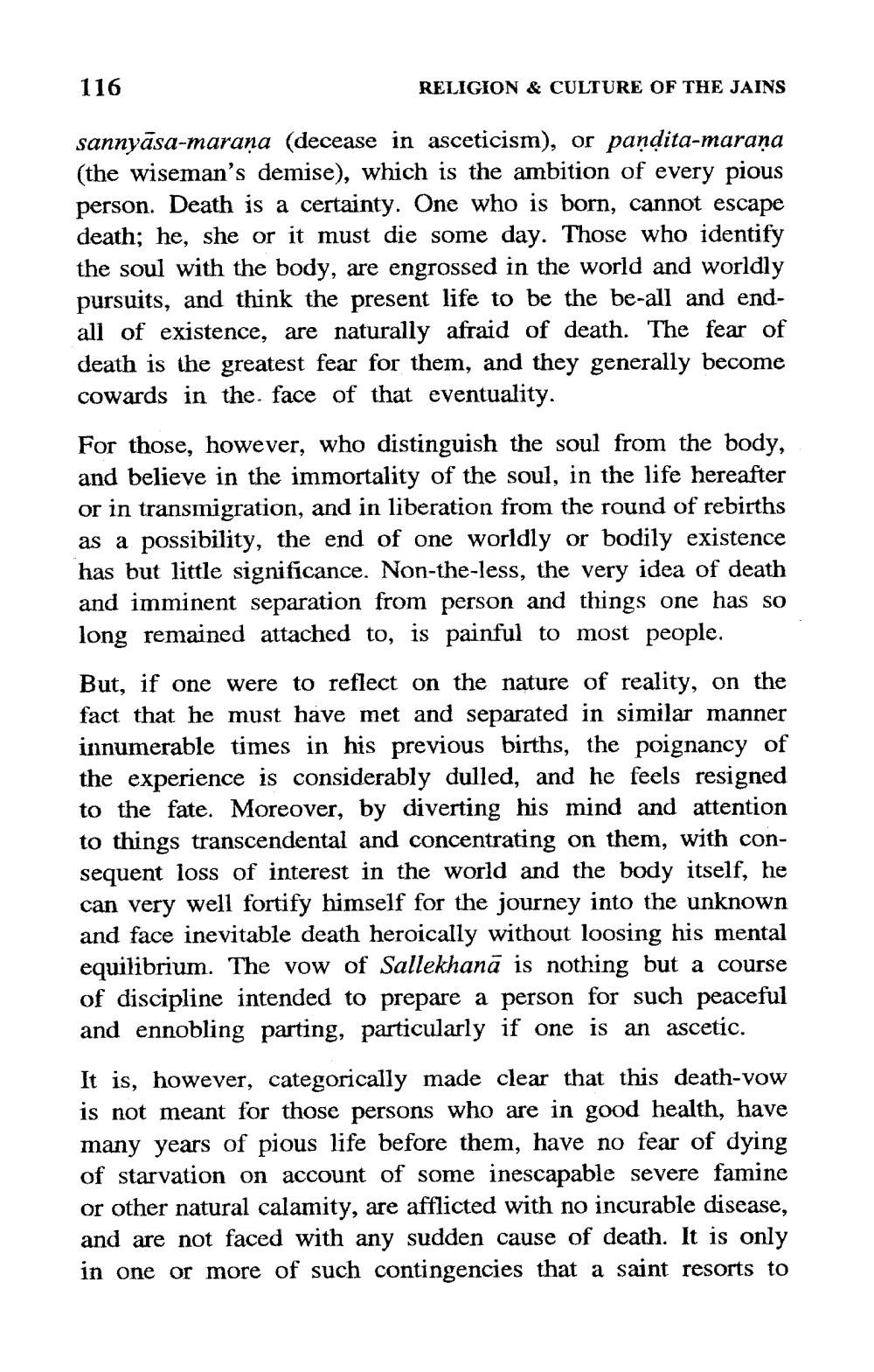________________
116
RELIGION & CULTURE OF THE JAINS
sannyāsa-marana (decease in asceticism), or pandita-marana (the wiseman's demise), which is the ambition of every pious person. Death is a certainty. One who is born, cannot escape death; he, she or it must die some day. Those who identify the soul with the body, are engrossed in the world and worldly pursuits, and think the present life to be the be-all and endall of existence, are naturally afraid of death. The fear of death is the greatest fear for them, and they generally become cowards in the. face of that eventuality.
For those, however, who distinguish the soul from the body, and believe in the immortality of the soul, in the life hereafter or in transmigration, and in liberation from the round of rebirths as a possibility, the end of one worldly or bodily existence has but little significance. Non-the-less, the very idea of death and imminent separation from person and things one has so long remained attached to, is painful to most people. But, if one were to reflect on the nature of reality, on the fact that he must have met and separated in similar manner innumerable times in his previous births, the poignancy of the experience is considerably dulled, and he feels resigned to the fate. Moreover, by diverting his mind and attention to things transcendental and concentrating on them, with consequent loss of interest in the world and the body itself, he can very well fortify himself for the journey into the unknown and face inevitable death heroically without loosing his mental equilibrium. The vow of Sallekhanā is nothing but a course of discipline intended to prepare a person for such peaceful and ennobling parting, particularly if one is an ascetic. It is, however, categorically made clear that this death-vow is not meant for those persons who are in good health, have many years of pious life before them, have no fear of dying of starvation on account of some inescapable severe famine or other natural calamity, are afflicted with no incurable disease, and are not faced with any sudden cause of death. It is only in one or more of such contingencies that a saint resorts to




